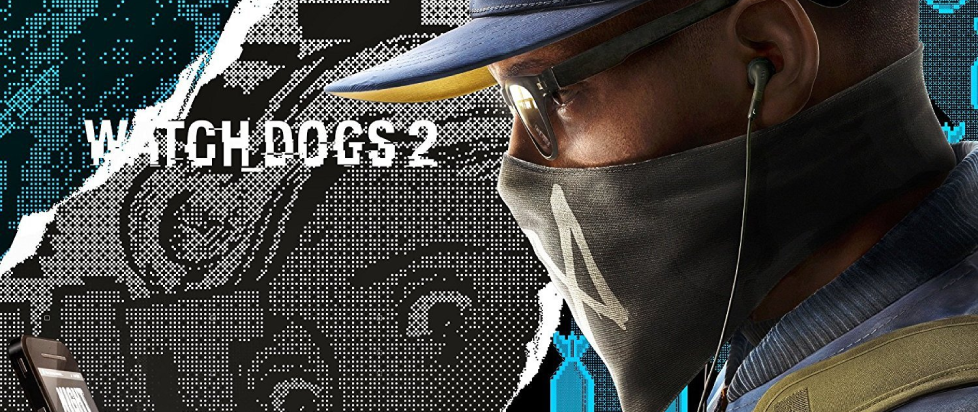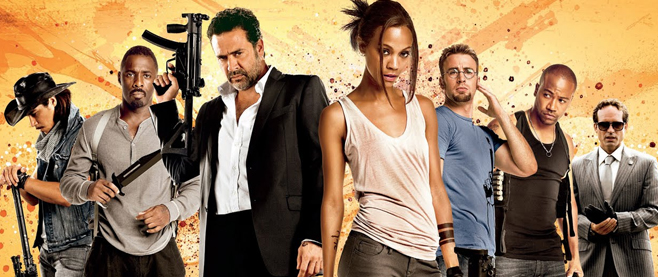
Escape from Tomorrow
Compared with the first game’s Chicago setting, Watch Dogs 2’s San Francisco seems more welcoming at first sight. The once unfriendly face of digital technocracy has been greatly embellished by the city’s bright sunshine, various locations and landmarks. Notably, the ability to slow down time is removed, and the number of weapons that can be equipped is limited. With the help of high-tech gadgets like RC Jumper and Quadcopter, players are encouraged to act like real hackers and solve problems in smart ways, rather than blatantly breaking into some heavily guarded places and erasing all hostiles with suppressed firearms or grenade launchers, which dilutes the narrative dissonance established in the first game.
Where there is oppression, there is revolt. As CTOS 2.0 is silently taking the city under control, there is a gang of weirdos tirelessly scratching beneath the surface. Instead of being a maverick like Aiden Pearce, Marcus and his friends understand the power of the people. They are very willing to expose the corruption of authorities and the scandals of tech companies to attract public attention. Meanwhile, unlike the stereotypical representation of young people throwing aimless anti-establishment tantrums, Marcus and his friends are not easily satiated by wealth, fame, or power, but emboldened by the greater purpose of whistle-blowing. This is why the taking down of New Dawn is placed at the front, as the colossus we are about to cross swords with is essentially nothing but a paper tiger, like the fake and brittle Sumerian tablets hosted in the temple basement.
Regrettably, the symptom of narrative dissonance has just been relieved, only to slip back into a bland epilogue. In the end, the game stops thinking about the next day. Marcus and Raymond finish satirizing Mr. Nemec, walk out of his office, and the clock is then turned back to sometime earlier when CTOS is running optimally in the shadows. We are only told about the rise of similar groups worldwide, which is obviously positioning for following stories. After a pattern of address and withdrawal, what we can see at last is an inability to take the concerns posed by the genre to their logical conclusions. So many plot twists only lead to an anticlimax.

This feeling reminds me of the experience of watching Full River Red (2023) last year. The title, a direct translation from the Chinese language, is taken from the name of a poem written by Yue Fei (1103–1142), one of the greatest generals and national heroes in Chinese history. He fought against foreign aggression and attempted to recover occupied territory, but was later framed by the notorious minister Qin Hui and executed in prison. Presumably, the story could be both an ode to Yue’s patriotic spirits and a lament for his unfulfilled ambitions. However, the significance of his death is actually blurred by the movie’s dramatic presentation and comedic scenes, and only after a group of people sacrifice their lives are the viewers shown that the group’s goal is to have Qin recite Yue’s last words, a poem which seems to make all the unexpected turns of narrative design suddenly become pointless and perplexing. In other words, as Filipe Freitas pointed out in his review, the movie “fails to emotionally invest the audience in the narrative.” The same applies to the story of Watch Dogs 2.
In the final part of the Paint Job mission, Marcus decides to climb high and tag the south tower of the Golden Gate Bridge with some words – “create”, “destroy” and “rebuild”. San Francisco has created the environment for talented hackers to show off, and thanks to the muckrakers, unpleasant information about the authorities and tech behemoths has been brought to light, stripping their credibility, integrity, and legitimacy. Still, the greatest pity is that Marcus does not succeed where Aiden has failed – to rebuild.
The story of Watch Dogs 2 has the ambition to construct something new or meaningful, but as it cannot draft a blueprint of tomorrow, there is eventually nothing to do but escape from it. On the one hand, the game is desperately trying to escape from a bad future created by the misuse of technology, whether it is to collect personal data, conduct mass surveillance, or secretly develop killing machines that can be used to fight against all enemies foreign and domestic. On the other hand, it is hastily trying to escape from an ambiguous and undefined tomorrow, where we are allowed to consider previously unthinkable alternatives; for instance, the end of technocracy and bureaucracy under capitalism rather than having another Mayor Rushmore or Congressman Thruss who would like to associate themselves with mob bosses or tech-savvy criminals in their evil deeds.

“What matters is the day after, when we will have to return to normal lives. Will there be any changes then?” We have the right to envisage a different future. On this matter, Watch Dogs 2 is unable to provide any ready answers and flees to indulge in the glory of the past, as if the threat of technology can be eliminated by reiterating the conception of a liberal civil society as an independent entity with inherently positive values. This nostalgia is the very manifestation of our lack of imagination. Are we merely performing rebellions within the framework which has been predetermined? Or are we invited to imagine something truly subversive? After all, we always have the right to envision a different future.
Matt Sayer contends that typical video game tropes in Watch Dogs would downplay its seriousness and blunt the incisive messages within. However, why not take this dilution of thematic profundity as an opportunity? It is definitely much safer and easier to infiltrate a server farm or hack a system in virtual spaces. Since we have yet to fully realize the potential mobilizing power of videogames, the point is to give people permission to wreak harmless havoc on the established order, until a single spark starts a fire. And this is what Marcus and his friends have been doing – revealing the dark side of everyday life while getting in and out of the restricted areas, clean.
———
Zonghang Zhou is a small-town boy seeking to write about games and culture in the English department. He is waiting with anticipation for someone to find him @zhzhou86.



